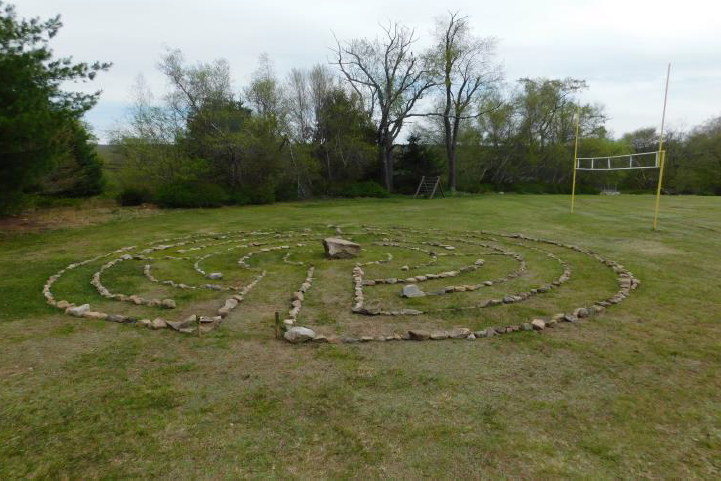Mindfulness strategies can help high-stress jobs

Sebrina Doyle Fosco is studying the use of mindfulness strategies to improve the well-being of workers in high-stress jobs. Her research requires extensive engagement with those she is trying to help so that she can best understand what interventions they are most likely to embrace. Mindfulness is the concept of paying attention on purpose, in the present moment and non-judgmentally.
Penn State defines community broadly in community-engaged research. A community can include geography, patient populations, organizations, demographics, policymakers, business communities, and more. In her study, Doyle Fosco worked with the staff in the Bureau of Juvenile Justice Services facilities.
The bureau held round-table discussions with staff at the start of the project and staff were surveyed about how they coped with stress and cared for their well-being. A core team of three Penn State staff and three bureau staff chose components of the intervention based on staff needs and then piloted the program. Seven training sessions served 82 participants. Six of these training sessions were led primarily by Penn State staff with bureau staff support. Bureau trainers conducted one training session with Penn State staff support. Bureau trainers then taught the program with Penn State staff observing for program fidelity. Participants were surveyed about their knowledge and satisfaction with the program.
“Simply put, there is no way that this project could have been successful without community engagement,” Doyle Fosco said. “This project was completely collaborative. Our staff had experts in mindfulness and research-related aspects; their staff were the experts in the needs of those at the facility and the activities that could be incorporated into the workday. We also worked with the bureau trainers to help them learn the mindful practices while they worked with us to help us learn about the ins and outs of the facilities. Each meeting was a learning opportunity for us all.”
The goal of this project was to develop a self-care program that could be deployed by staff trainers to help improve staff well-being. The mindfulness strategies used focused on using breath and body to focus.
“One of the favorite breath practices that we use is sometimes called the Navy Seal Box Breath,” Doyle Fosco said. “It is a breath counting practice where you inhale for four counts, hold for four counts, exhale for four counts and hold for four counts. We find that practices used by the military resonate with those who work in juvenile justice. Another practice that we use is mindful walking, which is bringing full attention to the soles of the feet while walking. This attentional focusing practice was embraced quite heavily by one of our sites. So much so that the site was planning to paint footsteps from the exit door to the parking lot to encourage their staff to do a short practice on the way home.”
The Mindful Awareness Program for Wellness was adopted by the end of the study. Doyle Fosco said that the goal wouldn’t have been reached without community engagement.
“The community aspect of this project was vital to the success of the project,” Doyle Fosco said. “For a program like this to be taken up by a community, it has to be developed with attention to the culture of the organization. Further, because their staff was going to continue to facilitate the program once the program was complete, we had to assure that materials were developed in an intuitive way that matched in format with other curricula that they were asked to facilitate.”
Doyle Fosco is a research affiliate at the Enda Bennett Pierce Prevention Research Center and a University graduate fellow in educational leadership at Penn State.
Support for Community-Engaged Research
Penn State Clinical and Translational Science Institute offers community-engaged research consultations to the Penn State community. Learn more about resources offered here. To request a consultation, complete a service request form.
If you're having trouble accessing this content, or would like it in another format, please email the Penn State College of Medicine web department.
